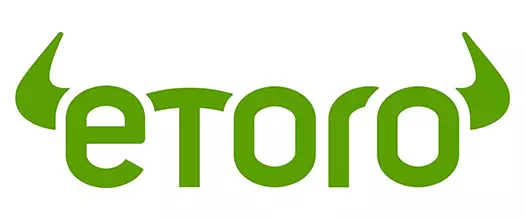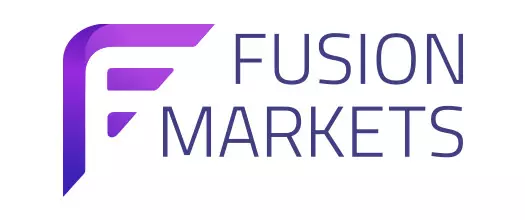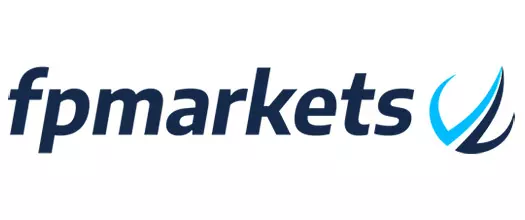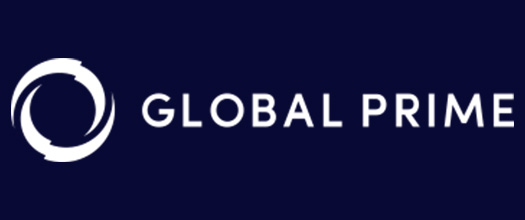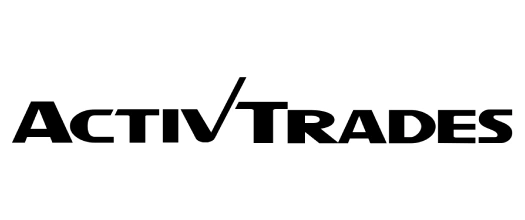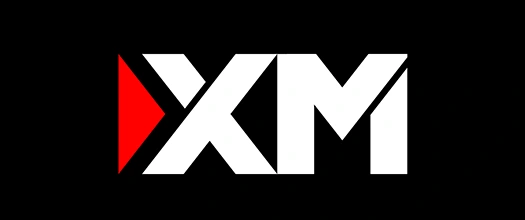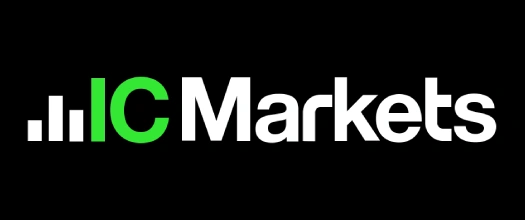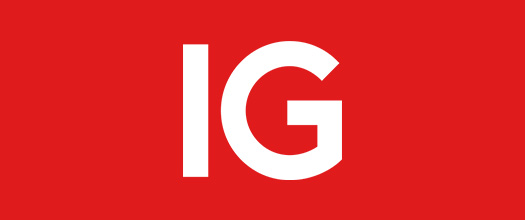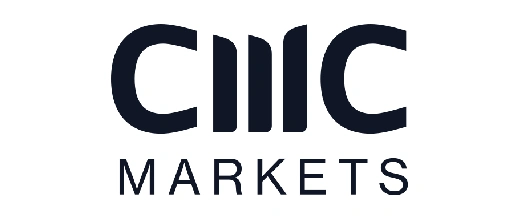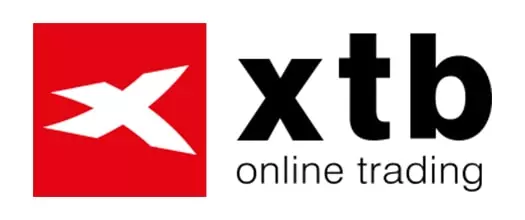Our team of expert traders has tested numerous regulated brokers offering Dow Jones trading to compile this top list of the best providers. Every platform that offers CFD trading on the Dow Jones Index received a quality score based on several factors, including its Trustpilot rating, regulatory status, fees and commissions, available software, customer service and more.
 Plus500 USThis content applies only to Plus500 US and clients from the United States. Trading futures involves the risk of loss.
Plus500 USThis content applies only to Plus500 US and clients from the United States. Trading futures involves the risk of loss. eToro61% of retail investor accounts lose money
eToro61% of retail investor accounts lose money Fusion Markets74-89% of retail's CFD accounts lose money
Fusion Markets74-89% of retail's CFD accounts lose money FP Markets73.85% of retail investor accounts lose money
FP Markets73.85% of retail investor accounts lose money Global Prime74-89% of retail CFD accounts lose money
Global Prime74-89% of retail CFD accounts lose money Pepperstone75.5% of retail investor accounts lose money
Pepperstone75.5% of retail investor accounts lose money
Top 10 Dow Jones trading brokers
In the dynamic realm of index trading, it is vital to find a reputable and competent Dow Jones trading broker through which you can speculate on price movements via CFDs, futures, options, spread betting and ETFs. TradingPedia has selected 10 of the best index brokers in the industry and reviewed each of them, so keep reading.
 TRADE NOWREAD REVIEWRegulatorsPlatformsMetaTrader 4, MetaTrader 5, Proprietary Mobile, Proprietary Web1. PepperstoneMin Deposit$0Fees
TRADE NOWREAD REVIEWRegulatorsPlatformsMetaTrader 4, MetaTrader 5, Proprietary Mobile, Proprietary Web1. PepperstoneMin Deposit$0Fees- No deposit and withdrawal fees
- No account maintenance and inactivity fees
Deposit MethodsCommissionsNo commissions on index CFDsSpreadEUR/USD: AVG 1.1 pips, GBP/USD: AVG 1.3 pips, USDJPY: AVG 1.3 pipsWithdrawal MethodsLeverage EU1:500 (CySEC | Pro Account), 1:30 (CySEC | Retail Account), 1:30 (FCA | Retail Account)Leverage non-EU1:500 (SCB | Pro Account), 1:30 (ASIC | Retail Account), 1:30 (DFSA | Retail Account), 1:200 (SCB | Retail Account)InstrumentsCommodity CFDs, Crypto CFDs, Energy CFDs, Forex CFDs, Index CFDs, Metal CFDs, Stock CFDsCFDs are complex instruments and come with a high risk of losing money rapidly due to leverage. 74.4% of retail investor accounts lose money when trading CFDs with this provider. You should consider whether you understand how CFDs work, and whether you can afford to take the high risk of losing your money.Pepperstone was established in 2010 and quickly became a leading online broker with offices around the world. Its portfolio currently comprises markets for seven asset classes, including indices, forex, cryptocurrencies, shares, currency indices, ETFs, and commodities. Index trading at Pepperstone is offered via contracts for difference (CFDs), with clients able to choose from more than 20 options, including US30, JPN225, AUS200, and UK100.
Comparisons with other online brokers indicate that Pepperstone’s spreads are quite competitive, averaging 2.5 for the US30. The broker generally charges no commissions on index trades. Maximum leverage depends on the client’s country of residence, with EU- and Australia-based retail traders having access to ratios of up to 1:20 for major indices. Customers in other supported countries can use higher retail leverage of up to 1:200 (1:400 for non-EU professionals).
Traders who join Pepperstone can choose between Standard and Razor accounts. The first option is suitable for beginners, as all trading costs are included in the spreads. Razor accounts are better suited to the needs of experienced traders who understand how commission sizing works. Spreads here are lower, but you pay a $6 round-turn commission per standard lot.
Pepperstone’s clients can contact a customer support representative via live chat, phone (+357 2503 0573), or email (support@pepperstone.com) 24 hours a day, five days a week. The fastest communication channel is live chat, but keep in mind that it is only available to registered traders who are logged into their accounts.
 TRADE NOWREAD REVIEWRegulatorsCySEC (Cyprus, # 371/18), FSAS (Seychelles, # SD130), FSCA (South Africa, # 50926), SCB (Bahamas), ASIC (Australia, # 286354), FSCM (Mauritius, # GB21026264)PlatformscTrader, IRESS, MetaTrader 4, MetaTrader 5, TradingView2. FP MarketsMin Deposit$50 (AU$100)Fees
TRADE NOWREAD REVIEWRegulatorsCySEC (Cyprus, # 371/18), FSAS (Seychelles, # SD130), FSCA (South Africa, # 50926), SCB (Bahamas), ASIC (Australia, # 286354), FSCM (Mauritius, # GB21026264)PlatformscTrader, IRESS, MetaTrader 4, MetaTrader 5, TradingView2. FP MarketsMin Deposit$50 (AU$100)Fees- No deposit and withdrawal fees
- No inactivity fees
- Overnight fees of -8.80 (long) and 2.66 (short)
Deposit MethodsCommissionsNone for index CFDsSpreadEUR/USD: AVG 1.2 pips, GBP/USD: AVG 1.4 pips, USDJPY: AVG 1.5 pipsWithdrawal MethodsLeverage EU1:500 (CySEC | Pro Account), 1:30 (CySEC | Retail Account)Leverage non-EU1:30 (ASIC | Retail Account), 1:500 (FSAS | Retail Account)InstrumentsCommodity CFDs, Crypto CFDs, Energy CFDs, Forex CFDs, Index CFDs, Metal CFDs, Stock CFDsTrade Responsibly: Derivative products are highly leveraged, carry a high level of risk and are not suitable for all investors.Our selection of top Dow Jones brokers continues with FP Markets, an award-winning company that enables CFD trading with indices, shares, commodities, cryptocurrencies, bonds, and ETFs. The index section of the website encompasses 15 major and minor indices, with clearly listed average spreads and swap rates. The broker provides extensive information on each index, including a brief description, history, trading hours, and more.
FP Markets caters to all traders by offering several popular third-party trading platforms. Clients can choose from MT4, MT5, TradingView, cTrader, and the broker’s proprietary WebTrader. The broker recently added TradeMedic to its extensive list of available trading tools, allowing customers to easily evaluate their trading behavior and detect and remedy errors. The broker offers Standard, Raw, and Iress accounts, each with distinct benefits. Standard accounts facilitate commission-free trading, while Raw accounts offer spreads starting at 0.0 pips in exchange for a $6 round-turn commission.
Iress accounts grant access to more than 10,000 instruments, economic calendars, market news, and a wealth of technical indicators. When testing the customer support provided by FP Markets, we were pleased to find that the broker delivers timely and professional service in more than 12 languages via live chat, email (supportteam@fpmarkets.com), and phone (+44 20 3831 3622).
 TRADE NOWREAD REVIEWRegulatorsCONSOB (Italy, # 211), FCA (United Kingdom, # 434413), SCB (Bahamas, # 199667 B), CMVM (Portugal, # 433), FSCM (Mauritius, # GB24203277), CVM (Brazil, # 43050.917/0001-03)PlatformsMetaTrader 4, MetaTrader 5, Proprietary Web, TradingView3. ActivTradesMin Deposit$0Fees
TRADE NOWREAD REVIEWRegulatorsCONSOB (Italy, # 211), FCA (United Kingdom, # 434413), SCB (Bahamas, # 199667 B), CMVM (Portugal, # 433), FSCM (Mauritius, # GB24203277), CVM (Brazil, # 43050.917/0001-03)PlatformsMetaTrader 4, MetaTrader 5, Proprietary Web, TradingView3. ActivTradesMin Deposit$0Fees- 0.5% on deposits (EU/EEA cards)
- 1.5% on deposits (non EU/EEA cards)
- $12.50 for bank transfer withdrawals in USD
- £9 for bank transfers in GBP (SCB and FSC entities only)
- A $10 inactivity fee after 50 weeks
Deposit MethodsCommissionsNo commissionSpreadEUR/USD: AVG 0.5 pips, GBP/USD: AVG 0.8 pips, USDJPY: AVG 0.5 pipsWithdrawal MethodsLeverage EU1:20Leverage non-EU1:400 (CMVM | Pro Account), 1:30 (CMVM | Retail Account), 1:1000 (FSC), 1:200 (SCB)InstrumentsBonds CFDs, Commodity CFDs, Crypto CFDs, ETF CFDs, Forex CFDs, Index CFDs, Share CFDsCFDs are complex instruments and come with a high risk of losing money rapidly due to leverage. 73% of retail investor accounts lose money when trading CFDs with this provider.You should consider whether you understand how CFDs work and whether you can afford to take the high risk of losing your money.Founded in 2001, ActivTrades has emerged as a solid choice for index traders, providing them with a varied selection of more than 30 competitively priced markets available through cash and futures CFDs. The broker fully complies with the regulatory frameworks in Portugal, Brazil, Mauritius, the UK, and the Bahamas, offering segregated accounts, negative balance protection, and investor compensation of up to $1 million. Index traders benefit from tight target spreads of 1.2 points on the Dow Jones Industrial Average Cash Index.
CFDs based on index futures prices are also available, offering even tighter target spreads of 1 point. The broker maintains a transparent, easy-to-understand pricing structure with zero commissions on index positions. Maximum leverage ratios range from 1:20 to 1:1000, depending on the client’s country of residence. The maximum position size depends on whether you trade the Dow via cash or futures CFDs. The former allows trading volumes of up to 100 lots, while the latter has a ceiling of 25.
All trading fees are built into the spreads, sparing novice traders the hassle of calculating commissions based on position size. The broker charges additional fees for inactivity, currency conversion, and transactions made with specific payment methods, so keep this in mind before opening a live account. When onboarding, customers can choose from swap-free, demo, and standard spread-only accounts, all with no minimum deposit requirement. Traders from Europe and the UK may also apply for professional accounts.
 TRADE NOWREAD REVIEWRegulatorsCIRO (Canada), CySEC (Cyprus, # 347/17), FRSA (United Arab Emirates, # 190018), FFAJ (Japan, # 1574), FSCA (South Africa, # 45984), FSRA (Canada, # 190018), ISA (Israel, # 514666577), JFSA (Japan, # 1662), ASIC (Australia, # 406684), BVIFSC (Virgin Islands, British, # SIBA/L/13/1049), CBI (Ireland, # C53877)PlatformsAvaOptions, DupliTrade, AvaSocial, MetaTrader 4, MetaTrader 5, AvaTadeGO, Proprietary Web, ZuluTrade4. AvaTradeMin Deposit$100Fees
TRADE NOWREAD REVIEWRegulatorsCIRO (Canada), CySEC (Cyprus, # 347/17), FRSA (United Arab Emirates, # 190018), FFAJ (Japan, # 1574), FSCA (South Africa, # 45984), FSRA (Canada, # 190018), ISA (Israel, # 514666577), JFSA (Japan, # 1662), ASIC (Australia, # 406684), BVIFSC (Virgin Islands, British, # SIBA/L/13/1049), CBI (Ireland, # C53877)PlatformsAvaOptions, DupliTrade, AvaSocial, MetaTrader 4, MetaTrader 5, AvaTadeGO, Proprietary Web, ZuluTrade4. AvaTradeMin Deposit$100Fees- Overnight fees of -0.0006% (sell) and -0.0266% (buy)
- No deposit and withdrawal fees
- A $50 monthly inactivity fee
Deposit MethodsCommissionsNone for index CFDsSpreadEUR/USD: AVG 0.8 pips, GBP/USD: AVG 1.2 pips, USDJPY: AVG 1.3 pipsWithdrawal MethodsLeverage EU1:20 (1:200 for professional traders)Leverage non-EU1:400 (Pro Account), 1:30 (Standard Account)InstrumentsBonds CFDs, Commodity CFDs, Crypto CFDs, Crypto Options, Energy CFDs, ETF CFDs, Forex CFDs, Forex Options, Index CFDs, Index Options, Metal CFDs, Share CFDs, Stock CFDs, Stock Options, US Stock OptionsCFDs are complex instruments and come with a high risk of losing money rapidly due to leverage. 71% of retail investor accounts lose money when trading CFDs with this provider. You should consider whether you understand how CFDs work and whether you can afford to take the high risk of losing your money.Established in 2006, AvaTrade has earned a reputation as a trusted online broker that offers a diverse selection of trading platforms, rich educational content, and more than 1,000 tradable markets. More than 30 indices are available through CFDs, and customers can choose among popular platforms such as MT4 and MT5. The most popular indices on AvaTrade include the DJIA, S&P 500, DAX 30, and FTSE 100, among others. The broker requires a minimum deposit of $100 and offers leverage of up to 1:200 to retail customers from specific jurisdictions.
As stated on AvaTrade’s website, there are no commissions for CFD trading, as spreads cover all associated trading costs. Spreads for the Dow Jones average 2.0 points over the market. Leveraged positions held open overnight incur swap charges, but these are subject to change over time. The broker charges no fees on deposits or withdrawals, but traders are charged a $50 monthly fee after three months of inactivity. Accounts left inactive for over a year incur an administrative monthly fee of $100.
AvaTrade strives to serve as many traders as possible, providing them with a choice of several proprietary platforms in addition to MT4 and MT5. Mobile users can take advantage of AvaTradeGO, while AvaSocial and AvaOptions are geared toward the needs of copy and options traders, respectively.
 TRADE NOWREAD REVIEWRegulatorsCySEC (Cyprus, # 109/10), FCA (United Kingdom, # 583263), FRSA (United Arab Emirates, # 220073), FinCEN (United States, # 31000204884179), FINRA (United States, # 298361), FSAS (Seychelles, # SD076), GFSC (Gibraltar, # 1333B), AMF (France, # E2022-038), MFSA (Malta, # C97952), SEC (United States, # 0001753042), ASIC (Australia, # 491139)PlatformseToro App, eToro CopyTrader, eToro Investing5. eToroMin Deposit$50 or $100 based on country ($10 for the UK)Fees
TRADE NOWREAD REVIEWRegulatorsCySEC (Cyprus, # 109/10), FCA (United Kingdom, # 583263), FRSA (United Arab Emirates, # 220073), FinCEN (United States, # 31000204884179), FINRA (United States, # 298361), FSAS (Seychelles, # SD076), GFSC (Gibraltar, # 1333B), AMF (France, # E2022-038), MFSA (Malta, # C97952), SEC (United States, # 0001753042), ASIC (Australia, # 491139)PlatformseToro App, eToro CopyTrader, eToro Investing5. eToroMin Deposit$50 or $100 based on country ($10 for the UK)Fees- Overnight fees of -$0.6225883 (sell) and -$10.67142156 (buy)
- No deposit and withdrawal fees
- A $10 monthly fee after 12 months of inactivity
- A $5 fee on withdrawals
Deposit MethodsCommissionsNone for index CFDsSpreadEUR/USD: AVG 1 pips, GBP/USD: AVG 2 pips, USDJPY: AVG 1 pipsWithdrawal MethodsLeverage EU1:400 (CySEC | Pro Account), 1:30 (CySEC | Retail Account)Leverage non-EU1:400 (FSAS | Retail Account)InstrumentsCommodity CFDs, Crypto CFDs, ETF CFDs, Forex CFDs, Index CFDs, Metal CFDs, Share CFDs, Stock CFDs, US Stock CFDs51% of retail investor accounts lose money when trading CFDs with this provider.You should consider whether you understand how CFDs work, and whether you can afford to take the high risk of losing your money.Since 2007, eToro has been a multi-licensed broker, providing customers with an easy-to-use platform, copy-trading services, and access to more than 7,000 financial markets. The company has continually expanded its portfolio to accommodate traders from all walks of life. The brokerage firm holds licenses issued by reputable authorities such as the Cyprus Securities & Exchange Commission (CySEC), the Financial Conduct Authority (FCA), and the Australian Securities and Investments Commission (ASIC).
The minimum deposit requirements at eToro are country-specific, ranging from $1 in the United States to $50 in most other jurisdictions. Clients from the United Kingdom are subject to a $10 minimum deposit.
The broker enables clients to trade 18 popular indices, including the Dow Jones (US30), the Nikkei 225, and the FTSE 100. If you’re not yet confident in your expertise, you can review the detailed DJIA trading guide before registering for eToro’s proprietary platform. It supports 19 languages and is compatible with desktop and mobile devices through free native apps for Android and iOS.
Last but not least, eToro provides industry-leading copy-trading services, allowing inexperienced clients to harness the proficiency of top-performing traders. Replicating their trades in your portfolio comes at no additional cost.
 TRADE NOWREAD REVIEWRegulatorsCFTC (United States, # 0516820), CySEC (Cyprus, # 120/10), DFSA (United Arab Emirates, # F003484), FSCA (South Africa, # 49976), IFSC (Belize, # 000261/27), FSCM (Mauritius, # GB23202700)PlatformsMetaTrader 4, MetaTrader 4 MultiTerminal, MetaTrader 5, Proprietary Mobile, Proprietary Web6. XM GroupMin Deposit$5Fees
TRADE NOWREAD REVIEWRegulatorsCFTC (United States, # 0516820), CySEC (Cyprus, # 120/10), DFSA (United Arab Emirates, # F003484), FSCA (South Africa, # 49976), IFSC (Belize, # 000261/27), FSCM (Mauritius, # GB23202700)PlatformsMetaTrader 4, MetaTrader 4 MultiTerminal, MetaTrader 5, Proprietary Mobile, Proprietary Web6. XM GroupMin Deposit$5Fees- No deposit and withdrawal fees
- A $5 monthly fee after 90 days of inactivity
Deposit MethodsCommissionsNo commissions on equity index CFDsSpreadEUR/USD: AVG 1.2 pips, GBP/USD: AVG 1.5 pips, USDJPY: AVG 1.4 pipsWithdrawal MethodsLeverage EU1:30 (CySEC | Retail Account)Leverage non-EU1:1000 (IFSC | Retail Account)InstrumentsBonds CFDs, Commodity CFDs, Crypto CFDs, Energy CFDs, ETF CFDs, Forex CFDs, Forex Options, Index CFDs, Index Options, Metal CFDs, Share CFDs, Stock CFDs, Stock Options, US Stock OptionsCFDs are complex instruments and come with a high risk of losing money rapidly due to leverage. 73.03% of retail investor accounts lose money when trading CFDs with this provider. You should consider whether you understand how CFDs work and whether you can afford to take the high risk of losing your money.XM is a truly global online broker with more than 10 million clients from over 190 countries and customer support in more than 20 languages. It holds licenses issued by several regulatory bodies, including the Cyprus Securities and Exchange Commission (CySEC), the Australian Securities and Investments Commission (ASIC), and the Belize Financial Services Commission (FSC).
The brokerage provides competitive prices for over 1,000 financial instruments that clients can trade on MT4 and MT5. The two platforms perform seamlessly on desktop and mobile devices running on macOS, Windows, iOS, and Android. Trading directly in your browser, without the need to install additional software, is also an option.
XM customers can choose from three account types, with Standard and Zero accounts requiring minimum deposits of $5. Share accounts have a considerably higher minimum deposit requirement of $10,000. Standard accounts offer commission-free trading at the expense of slightly higher spreads. Zero accounts provide tighter spreads, but traders pay round-turn commissions of $7 per standard lot. Traders can register live accounts in any of the following base currencies: USD, EUR, GBP, JPY, CHF, AUD, HUF, PLN, or RUB.
The broker offers CFDs and futures for thematic and equity indices, including the NASDAQ, Dow Jones, Nikkei, and S&P 500. Spreads for US30 CFDs start at 4.00 and average 4.33. Futures contracts for this popular index have wider minimum spreads starting from 9.0, with an average of 9.16.
- 7. IC MarketsMin Deposit$200Fees
- No inactivity fees
- Free deposits and withdrawals
- Overnight fees for US30 of -7.65 (long) and 2.03 (short)
Deposit MethodsCommissionsNone for index CFDsSpreadEUR/USD: AVG 0.82 pips, GBP/USD: AVG 1.03 pips, USDJPY: AVG 0.94 pipsWithdrawal MethodsLeverage EU1:500 (CySEC | Pro Account), 1:30 (CySEC | Retail Account)Leverage non-EU1:1000 (FSAS | Retail Account)InstrumentsCommodity CFDs, Crypto CFDs, Energy CFDs, Forex CFDs, Index CFDs, Metal CFDs, Stock CFDsTrading Derivatives carries a high level of risk to your capital and you should only trade with money you can afford to lose. Trading Derivatives may not be suitable for all investors, so please ensure that you fully understand the risks involved and seek independent advice if necessary.IC Markets is a leading brokerage that offers low-latency order execution and a selection of 25 major and minor indices, including the DJIA, S&P 200, and FTSE 100, among others. The website supports 15 languages, reflecting the broker’s global reach, which extends to more than 200 countries. Clients can engage in index trading through CFDs and can choose from MT4, MT5, TradingView, and cTrader. The platforms are compatible with desktop computers and mobile devices, as the broker has developed free downloadable applications for iOS and Android.
Traders on the Dow Jones who join IC Markets enjoy tight spreads as low as 1.0 pip (1.09 on average) and pay no commissions on CFD trades. Although the $200 minimum deposit is not particularly low, it can meet the needs of both beginner and professional traders.
IC Markets offers three account options – Standard, Raw Spread, and cTrader Raw Spread. Of the three, only the Standard account is completely commission-free. The other two types incur round-turn commissions of $7 and $6, but these apply only to specific markets such as forex.
Leverage of up to 1:200 is available to index traders outside the EU and Australia. IC Markets’ customer support team is reachable via live chat, email (support@icmarkets.com), and telephone (+248 467 1976). Rest assured, each of your questions will be answered promptly. You can even request a TeamViewer session for more complex issues.
 TRADE NOWREAD REVIEWRegulatorsCFTC (United States, # 0509630), DFSA (United Arab Emirates, # F001780), FCA (United Kingdom, # 944492), FFAJ (Japan), FINMA (Switzerland, # IG Bank S.A.), FMA (New Zealand, # 684191), FSCA (South Africa, # 41393), JFSA (Japan, # 9010401051715), MAS (Singapore, # 1489), ASIC (Australia, # 515106), BaFin (Germany, # 148759), BMA (Bermuda, # 54814)PlatformsL2 Dealer, MetaTrader 4, Proprietary Web, ProRealTime, TradingView8. IGMin Deposit$50Fees
TRADE NOWREAD REVIEWRegulatorsCFTC (United States, # 0509630), DFSA (United Arab Emirates, # F001780), FCA (United Kingdom, # 944492), FFAJ (Japan), FINMA (Switzerland, # IG Bank S.A.), FMA (New Zealand, # 684191), FSCA (South Africa, # 41393), JFSA (Japan, # 9010401051715), MAS (Singapore, # 1489), ASIC (Australia, # 515106), BaFin (Germany, # 148759), BMA (Bermuda, # 54814)PlatformsL2 Dealer, MetaTrader 4, Proprietary Web, ProRealTime, TradingView8. IGMin Deposit$50Fees- No fees for opening an account
- Free deposits and withdrawals
Deposit MethodsCommissionsNone for index CFDsSpreadEUR/USD: AVG 1.13 pips, EUR/USD: MIN 0.6 pips, GBP/USD: AVG 2.38 pips, GBP/USD: MIN 0.9 pips, USDJPY: AVG 1.8 pips, USDJPY: MIN 0.7 pipsWithdrawal MethodsLeverage EU1:222 (BaFin | Pro Account), 1:30 (BaFin | Retail Account), 1:30 (FCA | Retail Account)Leverage non-EU1:30 (ASIC | Retail Account), 1:200 (BMA | Retail Account)InstrumentsBond Futures, Bond Options, Bond Spread Betting, Bonds CFDs, Commodity CFDs, Commodity Futures, Commodity Options, Commodity Spread Betting, Crypto CFDs, Crypto Options, Crypto Spread Betting, Currency Futures, Energy CFDs, Energy Futures, Energy Options, Energy Spread Betting, ETF CFDs, ETF Options, ETF Spread Betting, Forex CFDs, Forex Options, Forex Spread Betting, Index CFDs, Index Futures, Index Options, Index Spread Betting, Interest Rate Futures, Metal CFDs, Metal Futures, Metal Options, Metals Spread Betting, Share CFDs, Stock CFDs, Stock Options, Stock Spread Betting, US Stock CFDs, US Stock Options, US Stock Spread BettingSpread bets and CFDs are complex instruments and come with a high risk of losing money rapidly due to leverage. 75% of retail investor accounts lose money when trading spread bets and CFDs with this provider. You should consider whether you understand how spread bets and CFDs work, and whether you can afford to take the high risk of losing your money. Options and turbo warrants are complex financial instruments and your capital is at risk. Losses may be extremely rapid.Established in the mid-1970s, IG is a reputable, long-standing broker with a comprehensive product range encompassing spread betting, CFD trading, futures, and barrier and knockout options. However, product availability varies by region and country.
The broker quotes competitive prices for more than 17,000 markets, including forex, commodities, shares, cryptocurrencies, and over 80 major and niche indices. The multi-regulated company has registered offices in the UK, Australia, Switzerland, and other countries. IG was named Best Multi-Platform Provider and Best Finance App at the 2021 ADVFN International Financial Awards.
The broker keeps pace with the latest industry trends, catering to mobile traders with easy-to-use native applications for iOS and Android. The apps can be downloaded from the App Store or Google Play, or directly from the broker’s website.
New clients can link their live accounts to several robust third-party platforms, including L2 Dealer, MT4, TradingView, and ProRealTime. Index traders enjoy spreads as low as 1 pt on major indices such as the AU 200 and 0.4 pts on the US 500. Retail clients in the EU can access leverage of up to 1:20, while those eligible for professional accounts enjoy leverage ratios as high as 1:222. The broker operates globally, with licenses issued by BaFin, ASIC, the BMA, the FCA, and the FSCA, to name just a few of the regulators overseeing IG’s operations.
- 9. CMC MarketsMin Deposit$0Fees
- Overnight fees for US30: -0.00438% (sell) and -0.02082% (buy)
- International bank transfers may incur fees
- A £10 monthly fee after one year of inactivity
Deposit MethodsCommissionsNone for index CFDsSpreadEUR/USD: MIN 0.5 pips, EUR/USD: AVG 0.6 pips, GBP/USD: MIN 0.9 pips, GBP/USD: AVG 1.1 pips, USDJPY: MIN 0.7 pips, USDJPY: AVG 1.3 pipsWithdrawal MethodsLeverage EU1:500 (FCA | Pro Account), 1:30 (BaFin | Retail Account), 1:30 (FCA | Retail Account)Leverage non-EU1:500 (ASIC | Pro Account), 1:30 (ASIC | Retail Account), 1:20 (MAS | Retail Account)InstrumentsCommodity CFDs, Crypto CFDs, Energy CFDs, ETF CFDs, Forex CFDs, Index CFDs, Metal CFDs, Share CFDs, Stock CFDs, US Stock CFDsSpread bets and CFDs are complex instruments and come with a high risk of losing money rapidly due to leverage. 73% of retail investor accounts lose money when spread betting and/or trading CFDs with this provider. You should consider whether you understand how spread bets and CFDs work and whether you can afford to take the high risk of losing your money.CMC Markets positions itself as a solid choice for novice and experienced index traders, offering more than 80 tradable indices via contracts for difference (CFDs). The broker also provides spread betting services and imposes no minimum deposit requirement, allowing new customers to start with any amount they wish. Clients can place orders through the broker’s proprietary Next Generation platform or MetaTrader 4 (MT4).
- Next Generation offers multiple charting features, market-sentiment tools, and up to five customizable layouts.
- MT4 provides access to an abundance of technical indicators and trading signals, and the platform is fully mobile-compatible.
The list of popular indices available at CMC Markets includes US30, UK100, Germany 40, SPX500, and ASX 200, to name just a few. In addition to indices, clients can gain exposure to 21 cryptocurrencies, over 300 currency pairs, more than 100 hard and soft commodities, treasuries, and thousands of shares and ETFs. CMC Markets provides educational content for all major asset classes, enabling clients to expand their knowledge and make informed decisions when they trade.
The broker offers accounts for CFD trading and spread betting, but the latter is available only to customers from select jurisdictions, such as the UK. CMC Markets caters to its international client base with licenses from the FCA, ASIC, CIRO, MAS, BaFin, and other financial regulators.
 TRADE NOWREAD REVIEWRegulatorsCNMV (Spain, # 40), CySEC (Cyprus, # 169/12), DFSA (United Arab Emirates, # F006316), FCA (United Kingdom, # 522157), FSCA (South Africa, # 49970), FSAN (Norway, # FT00118162), IFSC (Belize, # 000302/11), KNF (Poland), BaFin (Germany)PlatformsxStation 510. XTBMin Deposit$250Fees
TRADE NOWREAD REVIEWRegulatorsCNMV (Spain, # 40), CySEC (Cyprus, # 169/12), DFSA (United Arab Emirates, # F006316), FCA (United Kingdom, # 522157), FSCA (South Africa, # 49970), FSAN (Norway, # FT00118162), IFSC (Belize, # 000302/11), KNF (Poland), BaFin (Germany)PlatformsxStation 510. XTBMin Deposit$250Fees- Withdrawals below $50 may attract fees.
- A 0.5% currency conversion fee
Deposit MethodsCommissionsNo commissions for index tradingSpreadEUR/USD: AVG 0.9 pips, GBP/USD: AVG 2.2 pips, USDJPY: AVG 1.4 pipsWithdrawal MethodsLeverage EU1:200 (CySEC | Pro Account), 1:30 (CySEC | Retail Account), 1:30 (FCA | Retail Account)Leverage non-EU1:500 (IFSC | Retail Account)InstrumentsCommodity CFDs, Crypto CFDs, Energy CFDs, ETF CFDs, Forex CFDs, Index CFDs, Metal CFDs, Share CFDs, Stock CFDs, US Stock CFDsCFDs are complex instruments and come with a high risk of losing money rapidly due to leverage. 78% of retail investor accounts lose money when trading CFDs with this provider. You should consider whether you understand how CFDs work and whether you can afford to take the high risk of losing your money.XTB is a global online broker with offices in 13 countries, including the UK, Poland, France, and Germany. The company serves more than 1 million customers worldwide and operates in full compliance with the regulatory requirements set by prominent watchdogs such as CySEC and the FCA. It delivers fast order execution and tight spreads across more than 2,300 leveraged markets, including over 30 indices, 70+ forex pairs, 25+ commodities, and hundreds of stocks.
The index selection includes both major and niche benchmarks from Asia, Europe, Australia, and the United States. Examples include the US 100, Germany 40, AU200, and the Shanghai Composite Index. Spreads for the US30, in particular, generally start at around 2.0, with no commissions on CFDs for this asset class. Customers can fund their accounts with any amount, as XTB has waived its minimum deposit requirement. The broker supports a broad range of secure deposit methods such as Visa, MasterCard, Skrill, and Neteller, though availability varies by country.
XTB provides its proprietary platform, xStation 5, which pairs a user-friendly interface with advanced charting tools. Clients have access to one-click trading, trading calculators, detailed statistics, and market sentiment data. The platform is available through all major browsers as well as native Android and iOS apps. Maximum leverage for index traders based outside the EU and the UK ranges from 1:33 to 1:200, depending on the indices they trade.
Hardly anyone has escaped hearing about the Dow Jones in news programmes covering economics and finance. However, hearing about something and understanding exactly what it means are two completely different things, so let us examine the specifics of this stock market index and how the Dow Jones Industrial Average (DJIA) works.
The DJIA encompasses the blue-chip stocks of 30 of the largest companies listed on US stock exchanges. They represent the ‘who’s who’ of the US economy, with some of the most prominent names including Apple, Microsoft, Nike and The Coca-Cola Company. The Dow is a price-weighted index and is often considered a barometer of general market conditions in the country.
How Dow Jones trading works for traders and brokers
Brokerage companies play a key role in Dow Jones trading. Brokers act as intermediaries who interact directly with clients and connect buyers and sellers, enabling them to gain exposure to the index market. When using their services, index traders commonly pay fees in the form of market spreads.
Trading indices such as the Dow Jones is usually carried out through derivative instruments like those listed below:
- Contracts for difference (CFDs) – an agreement to pay or receive the difference between the opening and closing price of a given asset. Traders profit from price differences without buying and holding the underlying asset.
- Futures – in general, futures contracts involve buying or selling an asset at a set price on a pre-agreed expiry date. In the case of the Dow Jones, there is no transfer of physical assets because the index tracks the combined market performance of an entire group of stocks.
- Exchange-traded funds (ETFs) – ETFs are baskets of securities that track or seek to outperform underlying indices. They give traders broader exposure to the index market but often offer reduced liquidity and wider spreads than trading individual indices. Another option is to trade Dow Jones stocks individually.
The bid-ask spread compensates index brokers for taking the risk of holding assets until deals are completed. It represents the difference between the highest price a buyer is willing to pay for an asset and the lowest price a seller is willing to accept.

